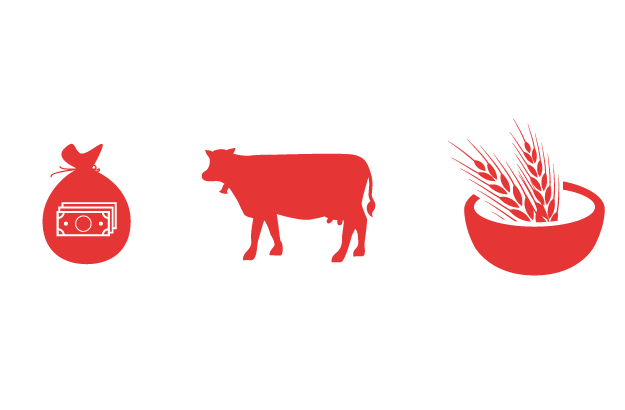The ICRC’s economic security work strives to ensure that households and communities can cover their unavoidable expenditures and maintain or restore sustainable livelihoods. These programs are in two broad categories; Emergency Response and Livelihood Programs
1. Emergency Response for 683,106 persons
- Food distribution to people affected by the cyclone in Puntland and by harsh droughts and conflicts in Sool, Sanaag, Nugal, Gedo, Hiran and Mudug regions: 177,732 persons
- Destocking (buying from pastoralists weakened animals due to the drought): 27,342 persons
- Meat from destocking distributed to 168,000 persons
- Sandbags Distributed to 51,672 farmer families benefiting 310,032 persons following severe flooding, in order to protect their farmland2.
2. Livelihood Programs for 956,282 persons
- 20 vulnerable communities assisted by establishing and developing farming cooperatives and, donation of tractors and, flood affected farmers assisted through seed (from cooperatives) and tools distribution: 124,320 persons
- Livestock distribution in Lower Shabelle to support 18,450 returnees
- Helped 1,107 pastoralist families for an alternate income generating benefiting 6,642 persons
- Supporting 8 veterinary clinics and 13 vet pharmacies benefiting 391,932 persons
- Prevention treatment for 3,500,000 heads of livestock benefiting 195,000 persons
- Vocational training on fishing and equipment maintenance for 1,800 persons (one household per family) benefiting 10,800 persons
- Direct cash assistance through mobile platforms targeting vulnerable women and cash for work programs for destitute breadwinners: 203,138 persons
- Vulnerable pastoralists in Northern regions were assisted to start a different kind of income generating activity: 6,642 persons


